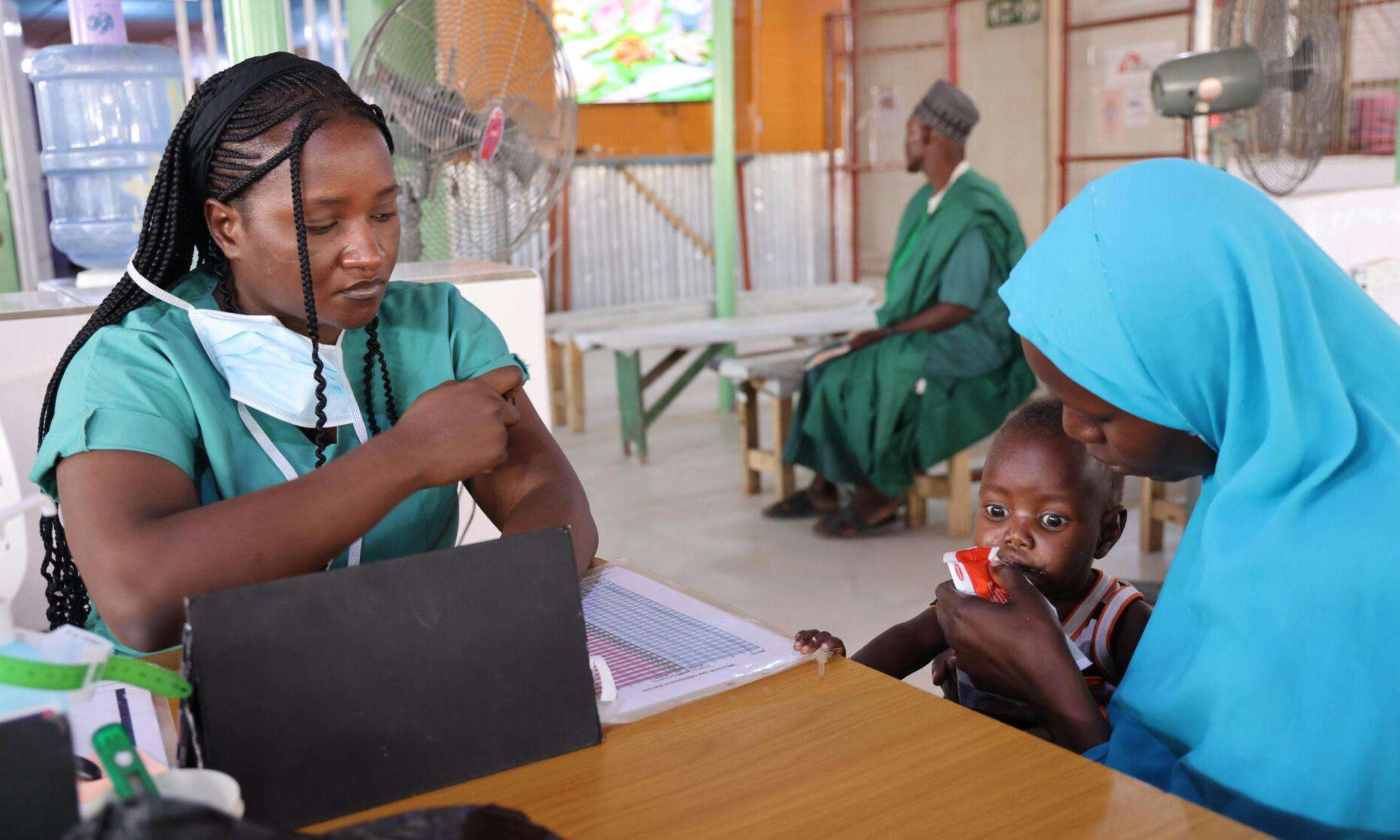The international medical humanitarian organization Doctors Without Borders/Médecins Sans Frontières (MSF) is alarmed by unprecedented admissions of malnourished children to its therapeutic feeding centers in Maiduguri, the capital of northeastern Nigeria’s Borno state. MSF warns of a catastrophic situation if immediate action is not taken.
“Food aid alone will not be enough,” said Gabriele Santi, MSF project coordinator in Maiduguri. “Authorities and aid organizations [must] immediately ramp up malnutrition-related activities, increase bed capacity in intensive therapeutic feedings centers, improve living conditions in transit camps, and expand people’s access to health care. This must be backed by a swift scale-up of donor funding and a strong coordination of these funds to make sure that food reaches those most in need.” Only 16 percent of the funds requested by the Global Nutrition Cluster—a group of humanitarian and United Nations organizations—have been secured.
A steeper, earlier rise in malnutrition
The number of admissions to MSF facilities in the first quarter of 2023 is the highest on record since MSF began malnutrition activities in the region in 2017. During the same period, 1,283 malnourished children were admitted for intensive care—about 120 percent more than the previous year.
In January, about 75 severely malnourished children were admitted every week to the Nilefa Kiji therapeutic feeding center in Maiduguri—approximately 300 percent more than the five-year average for the same period. By early April, there were nearly 150 weekly admissions, double the number the team saw in 2022 year.
The annual hunger gap occurs from June to November, when food stocks from the previous harvest traditionally run out and malnutrition levels peak. However, this year, MSF teams are seeing an earlier onset.
“The number of weekly admissions is two to three times higher than [what we’ve seen] over the past five years, and it’s still rising,” said Htet Aung Kyi, MSF medical coordinator. “Last year, we sounded the alarm in June when admissions skyrocketed at the start of the hunger gap. But this year, we are already seeing alarming numbers weeks [earlier]. The clock is ticking for action if we want to avoid a catastrophe.”
Why malnutrition is surging in Maiduguri
Years of conflict and insecurity have caused a critical humanitarian situation in Maiduguri, including high rates of malnutrition. Thousands of people have been displaced from their homes and now live in precarious conditions. At the end of 2021, official camps for displaced people were closed and there were significant cuts to humanitarian aid and food aid.
People facing movement restrictions are also prevented from earning a wage or growing crops. People’s ability to buy food was also impacted by a shortage of cash following a redesign of the Nigerian currency in late 2022. On top of this, the largest market in Maiduguri was destroyed in a fire in March this year.
This year’s unprecedented surge follows a historical 2022, which saw more than 8,000 severely malnourished children hospitalized for intensive care. Of those, 1,000 were living in the Hajj detention camp for former members of armed opposition groups, their families, and those who lived under their control. Many arrived at this transit camp in poor health, which worsened due to the harsh living conditions.
About MSF in Nigeria
MSF teams in northeastern Nigeria are providing inpatient and outpatient treatment for malnourished children and targeted supplementary feeding for children with moderate malnutrition to prevent them from becoming severely malnourished . MSF teams also provide basic health care through mobile clinics to people living in Hajj detention camp and Muna and Maisandari informal sites.
MSF is also responding to health and malnutrition crises in northwestern Nigeria. MSF teams work in 32 outpatient therapeutic feeding centers and 10 inpatient therapeutic feeding centers in Kano, Katsina, Kebbi, Sokoto, and Zamfara states. In 2022, MSF treated 147,860 children with severe acute malnutrition in northwestern Nigeria.




